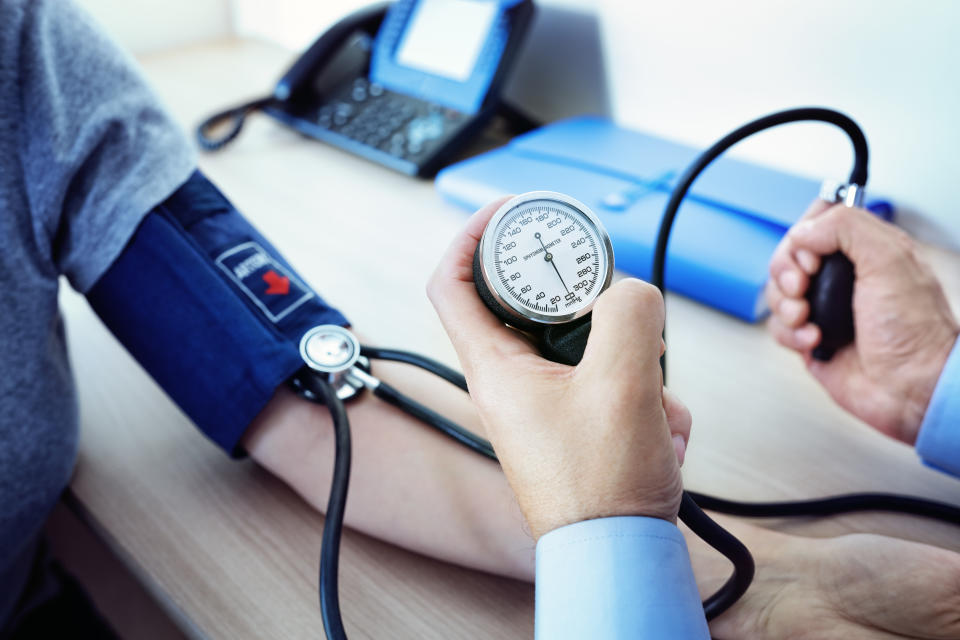One in 10 people in England have high blood pressure, depression or obesity

High blood pressure, depression and obesity are the most common medical conditions in England, a report has revealed.
NHS Digital collected data from 96.2% of GP practices to uncover the prevalence of everything from cardiovascular and respiratory conditions to smoking and mental health disorders.
Read more: Heart disease could be prevented in the womb
According to data collected between 1 April 2019 and 31 March 2020, more than one in 10 people have either high blood pressure (14.1%), depression (11.6%) or obesity (10.5%).
Diabetes has seen the biggest rise in patients, increasing by 0.9% since 2018/19.

The annual Quality and Outcomes Framework (QOF) – Prevalence, Achievements and Personalised Care Adjustments Report was made up of 6,720 GP practices that volunteered to take part.
The authors noted the coronavirus outbreak emerged in England during the last quarter of 2019/20, leading to “unprecedented changes in the work and behaviour of GP practices”.
“Consequently the data in this publication may have been impacted,” they added.
“As such, caution should be taken in drawing any conclusions from this data without due consideration of the circumstances both locally and nationally as of 31 March 2020.”
Read more: Botox could ease depression by up to 88%
The report was put together to “improve the quality of care patients are given by rewarding practices for the quality of care they provide to their patients”.
Payments were calculated based on “achievement scores”. One QOF point equalled around £187.74 ($245.95).
Out of a possible 559 points, 533.9 was the average score.
The number of practices achieving the maximum score was 7.3%, down from 13% in 2018/19.
How to overcome the three most common medical conditions
Blood pressure is measured in millimetres of mercury (mmHg). As a general guide, high blood pressure is considered to be 140/90mmHg or higher, with an ideal range between 90/60mmHg and 120/80mmHg.
The first number represents systolic pressure – the force at which the heart pumps blood around the body, while the second is diastolic pressure – the resistance to blood flow in the blood vessels.
Consistently elevated blood pressure puts a strain on the cardiovascular system, which can lead to heart attacks or strokes. It can also impact other organs, like the kidneys or eyes.
Medication and lifestyle changes – like quitting smoking, cutting back on salt and exercising regularly – can help.
Losing weight can also target high blood pressure.
Read more: Why are obese people more at risk of coronavirus complications?
Obesity is generally measured via a person’s body mass index (BMI), which takes into account their weight relative to their height.
For most adults, a BMI of 18.5 to 24.9 is considered healthy, 25 to 29.9 is overweight, 30 to 39.9 is obese, and 40 or above is severely obese.
Obesity has been linked to numerous health conditions, including type 2 diabetes and even certain cancers.
The government is working to tackle obesity in England by banning “buy one get one free deals” on unhealthy food and adding calorie counts to menus.
As well as its physical effects, obesity may also impact a person’s self-esteem, which can lead to depression.
Depression is more than just being sad. Many patients feel hopeless, struggle to get any enjoyment out of life or even have suicidal thoughts. Some also notice a change to their appetite, sleep or sex drive.
Exercise, talking therapies and antidepressants can all help ease the mental health disorder.
For confidential emotional support at times of distress, contact The Samaritans at any time by calling 116 123 or emailing jo@samaritans.org.

 Yahoo Lifestyle
Yahoo Lifestyle 